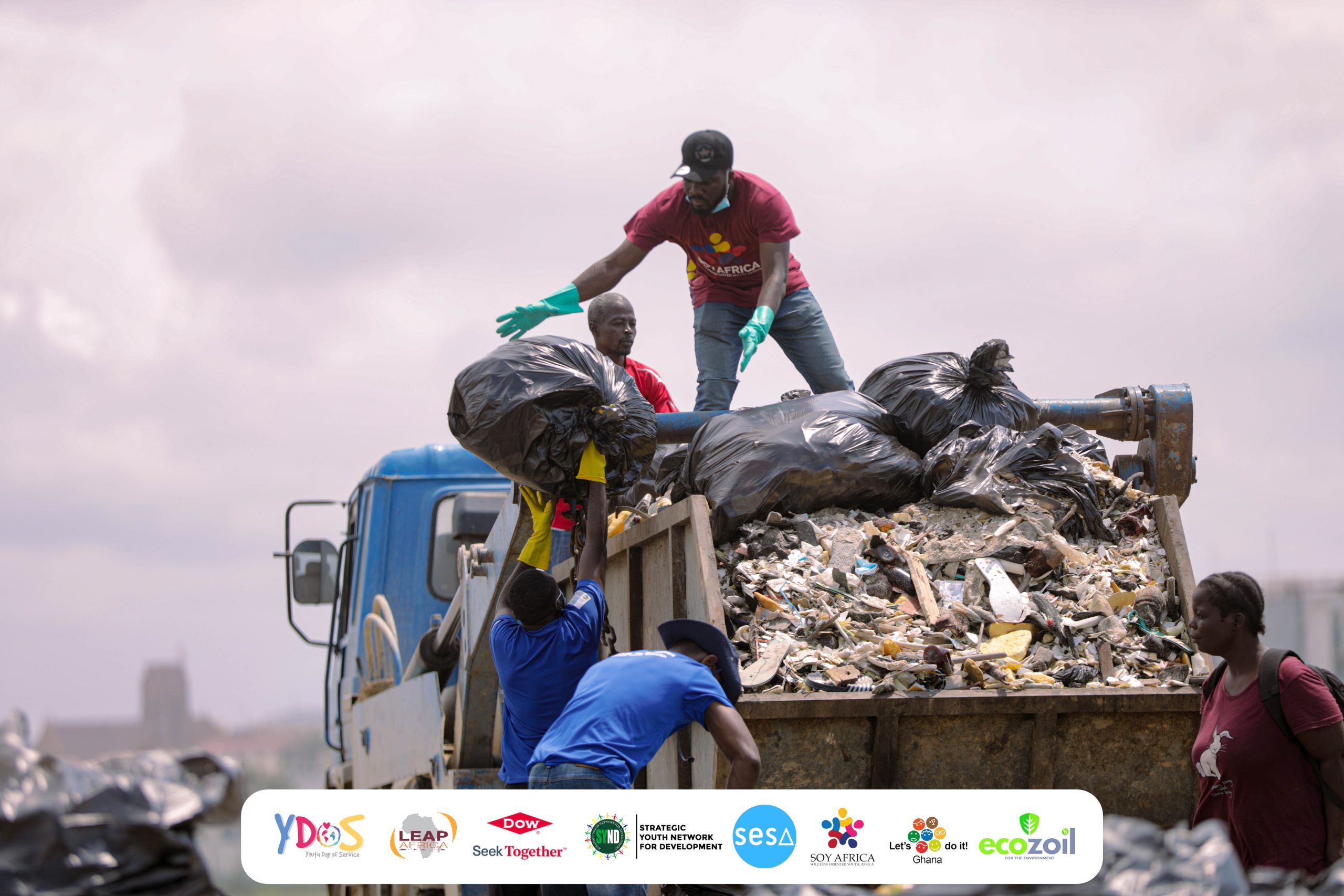
Story by: Sanitation Desk
In a powerful display of community solidarity and environmental responsibility, a group of dedicated organizations came together to undertake a beach clean-up exercise at Jamestown in Accra.
The initiative was organized to commemorate the Youth Day of Service (YDOS) under the umbrella of the International Youth Day (IYD) and was a joint effort of Strategic Youth Network for Development (SYND), LEAP Africa, and a consortium of supporting partners, including EcoZoil, SESA Recycling Limited, SOY Africa, Let’s Do It! Ghana, No Limit Charity Organization, and the Aseidu Keteke Sub Metro assembly.
The beach clean-up was more than just a collective effort; it was a poignant statement of the potential of grassroots action to effect meaningful change.
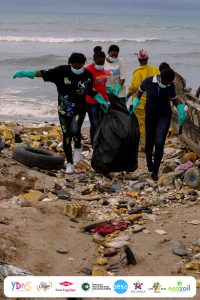
Some of the participants disposing of some of the waste
Volunteers and partners gathered with a common goal to demonstrate the power of community-driven initiatives in creating a cleaner and healthier environment and ocean life.
Equipped with gloves, rakes, shovels, garbage bags, and unwavering determination, participants meticulously combed the beach and shoreline for discarded waste.
The sight of community members, partners, and volunteers working hand in hand sent a resonating message of unity and shared responsibility for the planet.
Throughout the event, an astonishing one million tonnes of waste were collected from the seashore and this showcased the potential for transformation when a community unites for a common cause.
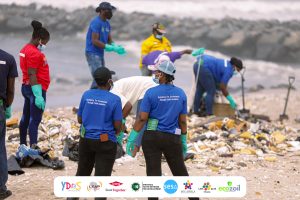
Young people busily cleaning up the Beach
The collected waste, which included plastics, glass, metal, paper, cloth, rubber, and other debris, was destined for a more sustainable fate.
Collaborating partners, notably SESA and EcoZoil, pledged to recycle the collected waste, further amplifying the positive impact of the clean-up.
However, the event also shedded light on a sobering reality where community members revealed that much of the waste originated from urban gutters, which later makes its way through the Odaw River and Korle Lagoon and later settles on the shores of Jamestown Beach.
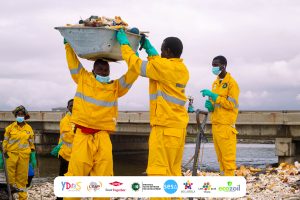
Beach Clean-Up in Jamestown to Commemorate Youth Day Of Service 2023
Among the debris were microplastics, a tiny fragments resulting from the breakdown of larger plastics that pose a grave threat to marine life.
Fish often mistake these microplastics for plankton, leading to dire consequences for aquatic ecosystems and the local fishing community.
The beach clean-up event, while physically transformative, also served as an educational opportunity where attendees were provided with informative material titled “Climate Change Basics,” to empower community members with knowledge about environmental conservation and the need for responsible waste management.
The event’s impact reached beyond the immediate clean-up site, resonating with a global call to action against ocean pollution.
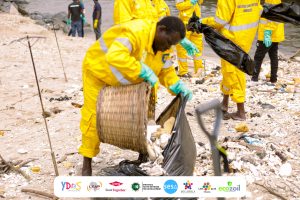
A volunteer busily emptying a basket of waste
The stark contrast between “before and after” snapshots of the beach clean-up offered a visual testament to the potential of collective effort in making a positive change.
The organizers expressed gratitude to the esteemed partners and volunteers whose dedication and support made the event a resounding success.
The clean-up not only cleansed the beach but also kindled a sense of environmental awareness that will hopefully continue to inspire sustainable practices in the community.
Source: www.thenewindependentonline.com


